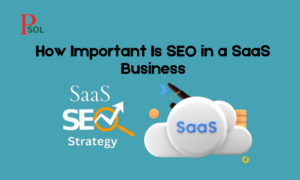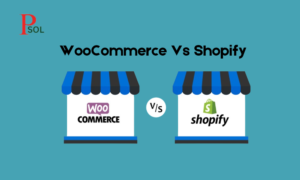Digital Marketing Road Map where online visibility is paramount, businesses are constantly striving to find the most effective digital marketing strategies to reach their target audience. Two prominent methods that often come into play are Pay-Per-Click (PPC) advertising and Search Engine Optimization (SEO). Both are powerful tools in their own right, but understanding the nuances of each can be the difference between a successful campaign and a wasted investment. In this article, we will delve into the intricacies of PPC vs. SEO, exploring their strengths, weaknesses, and how to choose the right roadmap for your digital marketing endeavors.
What is Pay Per Click PPC?
Pay-Per-Click advertising is a model where advertisers pay a fee each time their ad is clicked. These ads are typically displayed prominently on search engine results pages (SERPs) or on websites and social media platforms. The most common platform for PPC advertising is Google Ads, formerly known as Google AdWords.
What are Advantages of PPC:
Immediate Results: One of the most significant advantages of PPC advertising is its ability to generate immediate results. Once a campaign is set up and launched, ads can start appearing on search engine results pages, driving traffic to your website almost instantly.
Choose Targeted Reach:
PPC allows advertisers to target specific demographics, locations, and even interests, ensuring that ads are seen by the most relevant audience.
Measurable Return of Investment ROI:
With PPC, every aspect of a campaign is trackable, from the number of clicks to the conversion rate and cost per acquisition. This makes it easy to measure the return on investment (ROI) and make adjustments as needed to optimize performance.
Disadvantages of PPC:
Paid and Costly Process:
While PPC can deliver quick results, it can also be expensive, especially in competitive industries where the cost per click (CPC) can be high.
Dependency on Budget:
PPC campaigns require ongoing investment to maintain visibility. Once the budget is exhausted, ads will cease to appear, potentially resulting in a loss of traffic and leads.
Competitors Click Fraud:
PPC campaigns are susceptible to click fraud, where competitors or malicious actors click on ads with no intention of converting, leading to wasted budget and skewed performance metrics.
What is Search Engine Optimization SEO?
Search Engine Optimization is the process of optimizing a website to rank higher in organic search engine results. Unlike PPC, SEO does not involve paying for clicks but focuses on improving the quality and relevance of a website’s content to attract organic traffic.
Benefits of SEO:
Long-Term Results: While SEO may take time to show results, the benefits are long-lasting. Once a website ranks well for relevant keywords, it can continue to attract organic traffic without ongoing investment.
Authority and Trust of Google and Users:
Websites that rank highly in organic search results are often perceived as more credible and trustworthy by users. This can lead to higher click-through rates and conversion rates.
Cost-Effectiveness / Affordable SEO Process:
Unlike PPC, where every click comes at a cost, organic traffic generated through SEO is free. This makes SEO a cost-effective strategy in the long run, especially for businesses with limited marketing budgets.
Disadvantages of SEO:
Time-Consuming / Long Term Marketing Process:
SEO is a long-term strategy that requires ongoing effort and patience. It can take months or even years to see significant results, depending on the competitiveness of the industry and the chosen keywords.
Search Engine Algorithm Changes / Website Hat:
Search engine algorithms are constantly evolving, and what works today may not work tomorrow. Keeping up with algorithm changes and adjusting SEO strategies accordingly can be challenging.
Uncertainty of Search Engine:
Unlike PPC, where results are predictable based on budget and bidding strategy, SEO is subject to factors beyond your control, such as changes in search engine algorithms or new competitors entering the market.
Choosing the Right Roadmap:
When it comes to choosing between PPC and SEO, there is no one-size-fits-all answer. The right roadmap for your digital marketing efforts will depend on various factors, including your budget, goals, timeline, and the nature of your business.
Budget Friendly Marketing Strategy:
If you have a limited budget and need to see immediate results, PPC may be the best option. However, if you have the resources to invest in a long-term strategy and are willing to wait for results, SEO can offer a higher ROI over time.
Targeted Goals To Archive:
Consider what you want to achieve with your digital marketing efforts. Are you looking to increase brand awareness, drive sales, or generate leads? PPC may be more suitable for driving immediate sales or leads, while SEO can help improve brand visibility and credibility over time.
Depend On Timeline:
If you need to see results quickly, such as for a product launch or seasonal promotion, PPC is the way to go. On the other hand, if you have a longer timeline and are willing to invest in building sustainable organic traffic, SEO may be a better option.
Market Competition Analysis:
Take into account the competitiveness of your industry and the keywords you want to target. If competition is fierce and CPCs are high, PPC may be less cost-effective. In such cases, focusing on SEO to improve organic rankings can be a more sustainable approach.
Conclusion:
Both PPC and SEO show important roles in driving traffic, generating leads, and increasing revenue. Choosing the right roadmap for your business requires careful consideration of factors such as budget, goals, timeline, and competition. While PPC offers immediate results and targeted reach, SEO provides long-term sustainability and cost-effectiveness. Ultimately, a well-rounded digital marketing strategy may incorporate elements of both PPC and SEO to maximize results and achieve business objectives.




